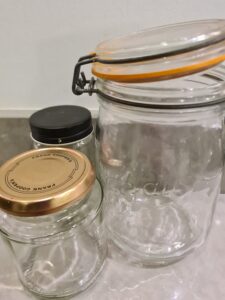The Bosky Blog
November, 2023
The skill of remembering: What do we remember and how?

Heather Sargeant
What do we remember? I grew up in the same place as Guy Fawkes who was responsible for the gunpowder plot in London. Centuries later, this is still a day that is remembered in the UK with bonfires and fireworks. I have been to the church where Guy Fawkes was baptised and regularly driven past the school he attended. At that school, you would not see a ‘guy’ on a bonfire on 5 November.
And on 11 November in the UK, we remember Armistice Day and the cessation of fighting in the First World War, and also all other conflicts. My dad recently sent me some photos that my grandpa took in the Second World War and his Certificate of Discharge. When I see my grandpa in uniform, history is less distant and more real.
There is a theory that we are only six handshakes away from any living person – six degrees of separation. So our connection to people and events is perhaps stronger than we think.
- What do we remember
Unsurprisingly this leads me to my November thoughts. What do we remember? How do we collect and choose our best ideas?
In the last couple of weeks, I’ve been focusing on generating ideas. These are ideas that I can come back to and iterate, or come back to and sense-check or develop.
It has made me consider how I research and keep hold of the things I find or the thoughts that spring up in my mind.
I think I have also realised that some of my sense-checking and iteration is done when I meet up with friends. They pepper my thoughts with new and extra ideas and this helps me to pursue an idea or a concept in a different way. I do some mental rearranging of my ideas to reorganise and add their thoughts into my thought-map. (For full transparency, there are occasions when I consider the additional thought and decide it doesn’t fit at the moment and chuck it away.)
- Concept maps
My brain feels to me like a very large concept-map. I have recently used Miro in this way, gathering and connecting my thoughts on a particular subject. And, of course because I am a teacher and like handwriting stuff and doodling, I still use pencil/pen and paper. When I am preparing for a meeting or a pitch and researching the topic, I always end up drawing a concept map, even though what I actually say ends up edited on a couple of post-it notes.
One of my tutoring sessions that I have prepared over the last week is a ‘mind mapping’ introduction so more of a study-skills session rather than teaching literacy. For my student, this is really relevant as a) art is their superpower and b) I think the visual way of representing information will really help their retention of curriculum knowledge.
Earlier in the year, I had the joy of visiting the Clos de Lucé where Leonardo da Vinci lived when he lived in France. There are rooms which show his inventions from sketches to models and outside there are larger-scale models of his inventions. It’s like a tiny window into his creative thought processes and it is fascinating. It makes me want to keep my scrapbooks and journals because they might develop into something more significant.
- Sharing scrapbooks
In pedagogy, I have noticed the increase in using a central scrapbook as a record of how children have collected and shaped their ideas around a learning topic. This is a type of group scrap book which shows the progression through a curriculum area in a visual way which takes some of the emphasis away from individual recording and instead gives a shared recollection through photographs, drawings and text (where suitable) to demonstrate what has been explored and learned.
Does everyone’s voice and work have equal chance of being kept and included in the scrapbook? And I would bet that some learning is edited out as being ‘off topic’ but is actually really great learning.
Off topic learning is so useful. What are the really pertinent and useful life-lessons that we learn in our class that aren’t kept or recorded? Have we learned that we all have different recollections of an event because we all have different viewpoints? Have we learned something when things ‘went wrong’ in the classroom and we all had to think on our feet and recalibrate our lesson and our expectations? Have we learned methods of practice that we can get out and try when our school routine changes unexpectedly?
So as the year draws to a close, I will think about my own learning during this past year. Maybe I will draw my own mind map gathering my recollections and learning points and (the many) times I had to recalibrate.
TLDR:
- We are more connected to other humans than we might think.
- There are many things we remember and mark in the world and we also do this in our journey of learning.
- Concept maps are a really useful way of remembering and linking learning, and scrap books gather together learning in a shared way. (See the links below.)
- There are things that are useful that are learnt but off-topic. Do we gather and remember these things or do they get lost?
Links:
Tony Buzan’s work on Mind Maps is *the* place to look if you are interested. He has also written a book which is helpful: https://www.tonybuzan.edu.sg/about/mind-maps/
Floorbooks is an approach developed by Claire Warden. I have used the term scrap books in my blog but this doesn’t reflect the full ‘Floorbook’ approach. You can look here for more details: https://mindstretchers.academy/blog/child-led-planning-starting-out-with-the-floorbook-approach
You can find Emma Clarke’s holiday journals here (You are here. and This Book Stinks) to collect and remember your best moments and memories.